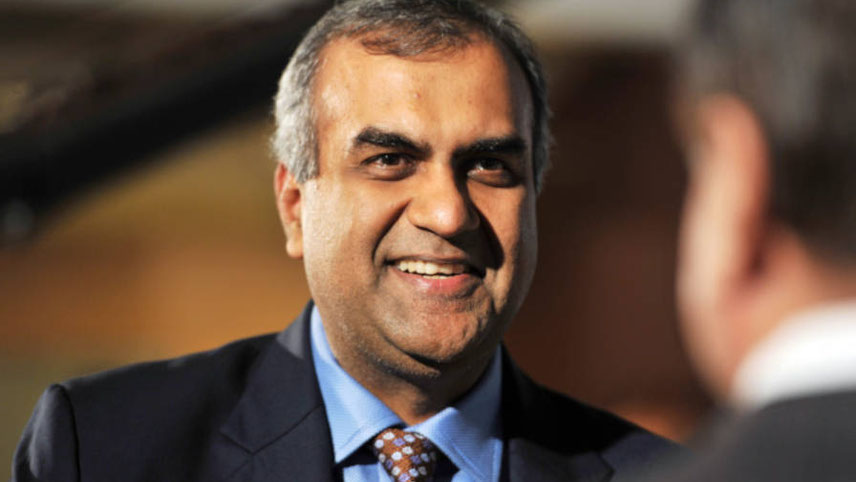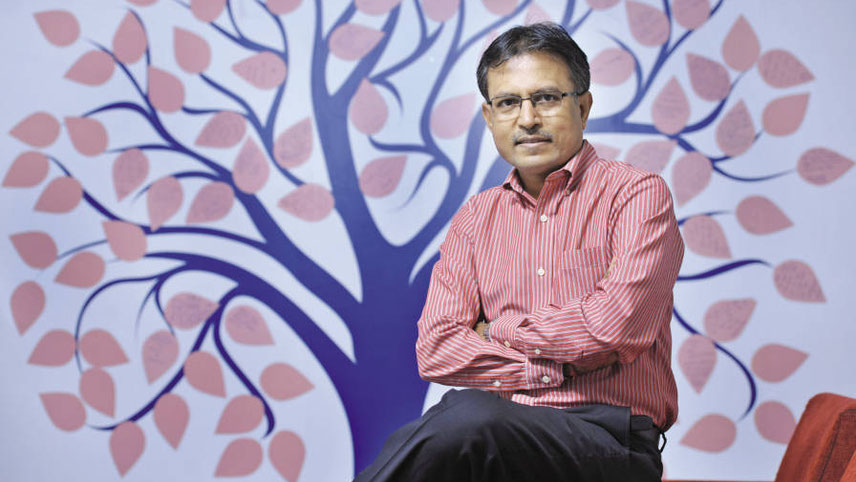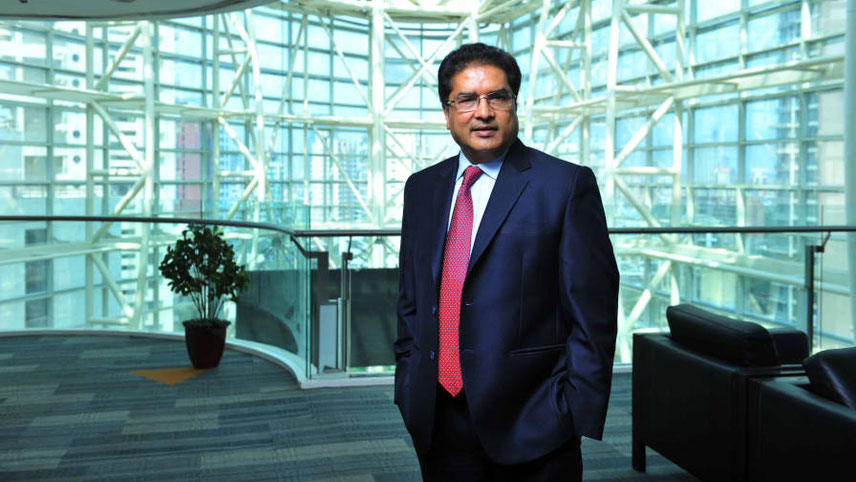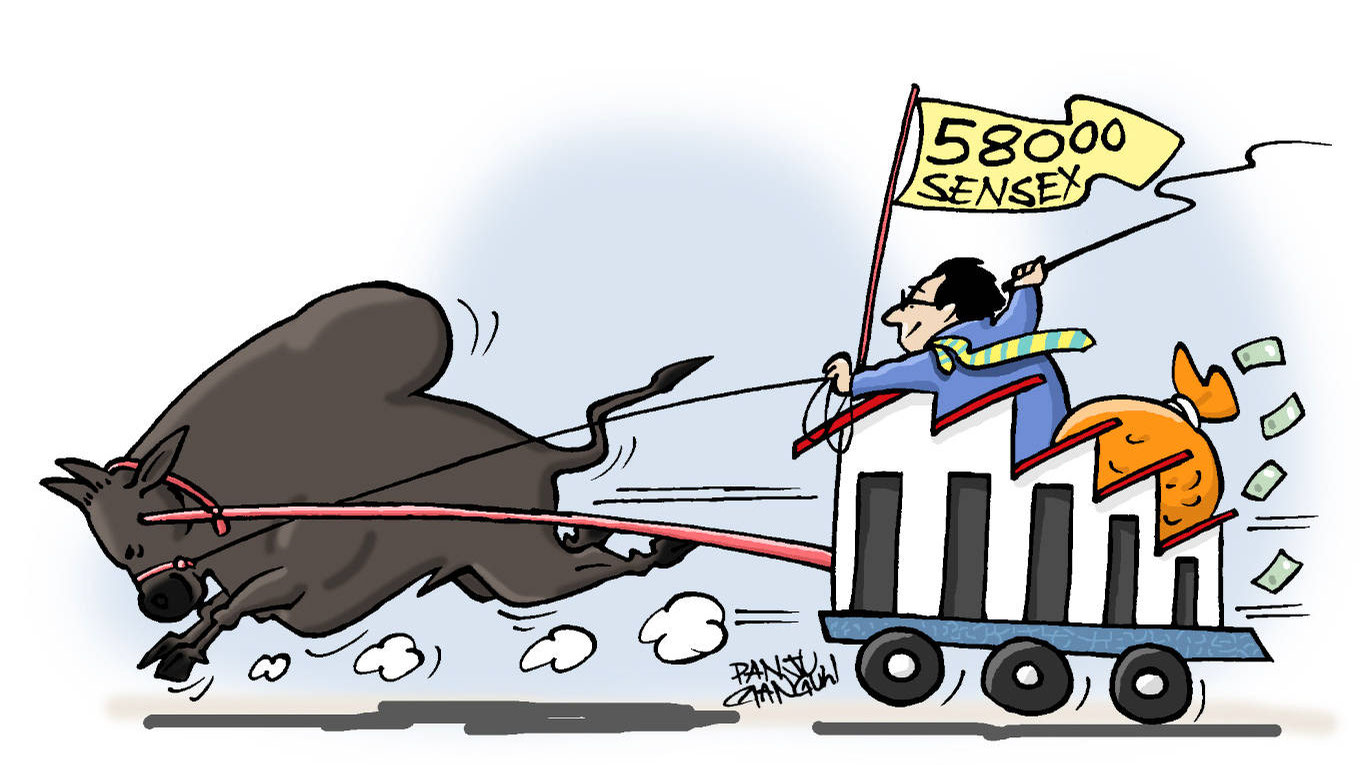-

Chokhani: technology draws investors
To a certain extent there is some double counting in counting the market cap of groups. Especially when the subsidiaries are also listed. However, most business houses do have inter-group holdings. Be they Tatas, Bajaj or HDFC or Aditya Birla Group.
Adani group has also seen a spectacular rise with the total market cap of the group rising 4x to Rs8 lakh crore plus market cap. Except for Adani Power, the other five listed companies in the group – Adani Total Gas, Adani Enterprise, Adani Green, Adani Ports and Adani Transmission – have a market cap of over Rs1.5 lakh crore each.
Undoubtedly, the business environment has been good. “Business cycles have changed to spur growth. Those groups which have invested in building capacities during lean times have benefitted more than others” says Deven Choksey, MD, KR Choksey Investment Managers. Admitting that commodity cycles have helped groups like Tatas, Birlas, Adanis and Vedanta, he says it would be unfair to attribute the rise in market cap solely to favourable business cycles.
In the case of Tatas, some companies have grown phenomenally. Tata Steel has gone up by 3.2 times from July 2020 as has Hindustan Aluminium which has gone up 3x. Most groups have beaten the growth of all indices. The BSE 500 has gone up by 92 per cent between March 2020 and 31 August. Many companies in several groups have witnessed higher growth.
Certain companies, especially consumer facing companies, have changed their strategies during the Covid period and have hence grown faster. IT companies have also seen a vast change in fortune since the Covid period as companies have been increasingly adopting technology to create opportunities for their businesses. The best example is of Hindustan Unilever tying up with JioMart for ensuring a wider reach during the lockdown period. “Covid has also accelerated tech and tech-enabled services to grow faster,” says Manish Chokhani, a respected financial advisor who holds independent directorship in several companies, including Enam Holdings Pvt Ltd.
Chokhani adds: “Good governance and technology are two factors drawing investors to a particular group.” Looking at the top five ranked groups, Chokhani points out that Tatas were always tech savvy, and RIL saw a huge rerating post the creation of Jio Platforms. Bajaj Finance relies heavily on technology as does ICICI group.” Explaining that problems of NPAs are fast diminishing and are virtually over, Chokhani says ICICI is now riding on a new credit cycle.
-

Shah: capital allocation counts
“I find it is really noteworthy that HDFC group which is in traditional businesses, is ranked second. Deepak Parekh has raised the bar across all its businesses, Housing finance, Bank, Life Insurance and AMC. Within a span of 40 years it has created remarkable businesses,” says Raamdeo Agrawal, co-founder and MD of Motilal Oswal Financial Services group. “Ethics forms the bedrock of success in the case of HDFC group as also several groups in the top business houses.”
Agrawal, an astute observer of corporate India, says investors do not mind giving a higher premium to such groups even though some other groups may be more profitable. A higher p/e is reflective of such premiums, with investors preferring to do a trade-off between growth and governance. “Groups which do not respect minority shareholders have been meted out harsh punishment,” says Agrawal.
Execution abilities count
“Investors are becoming smarter and are now looking at both the intent spelt out by the leaders as also the action taken in pursuing the intent,” says A Balasubramanian, MD and CEO, Birla Sunlife Mutual Fund. “This is one of the reasons why some groups’ company shares are more preferred over others.” Secondly investors are also evaluating the leaders in charge of the group and gauging the talent pool below it. Talking about N Chandrasekaran, Balasubramanian says:
“Leaders at the top influence the investor’s decision. While the group focusses on charity, individual companies are clearly mandated to focus only on profit. Mukesh Ambani spells out his vision and executes his plans as do several of the top leaders. Great management, great vision, ably aided by top quality advisors, have been some of the factors.”
Nilesh Shah, MD and CEO, Kotak AMC, says: “Besides growth and governance, capital allocation is also an underlying theme underwriting the success of companies in the groups. In the case of Tatas, which is an ethical group, investors are happy that N Chandrasekaran has been questioning the need for capital. “Responsibility and accountability of the management is something which Chandrasekaran has introduced,” he says, adding that execution timelines are expected to be followed meticulously.
-

Balasubramanian: leaders influence investors
Demergers and creating shareholder value
Groups like HDFC, ICICI, L&T and Adani have been creating shareholders value by listing their diverse verticals one after the other and allowing shareholders to participate in wealth creation. A company with several businesses capable of standing alone by not demerging its verticals is likely to suffer from a holding company’s discount.
In the case of Bajaj Finserv, there is a likelihood that it may choose to demerge both its insurance arms and list them at a later date. The demand for meeting higher solvency margins to meet additional growth in business could probably see both insurance arms being spun off.
Aditya Birla also created Aditya Birla Capital which houses all financial companies under one umbrella and is now looking at listing some of them. The first one to be off the block is Birla Sunlife Mutual Fund. It consolidated its cement businesses into UltraTech. The Century Textiles’ cement business was also merged into the company.
Demerger is often used by business groups to allow businesses more freedom to grow and listing them separately also makes them more accountable to shareholders at large. However, Uday Kotak is not in favour of demerging its different arms having said earlier that it does not want to create conflict of interest.
Deven Choksey says: “One cannot rule out demergers. Kotak Bank has insurance, securities, asset management and an NBFC, all under Kotak Bank. As and when the management decides to list all of them one may see a huge growth in the market cap of the group.” L&T had multifarious businesses which were consolidated and either listed separately or sold off. Earlier in 2018, it had sold off its electrical and automation business to Schneider for Rs14,000 crore. Its AMC, according to some analysts might also follow suit.
The largest wealth creation could probably come from the spinning off of the retail business and the refinery business in the case of Reliance Industries. While the group has been making several investments in related entertainment business in Hathway Cables, Infomedia, TV18 and several other smaller ones, the biggest gains will come on listing its larger businesses of retail and oil refinery.
With the Jio Platforms in place and its forays announced in green energy and the power business, one cannot rule out new verticals being created. Data Centres, which are big power-guzzlers can well be set up next to its power business. There would be enough data from Jio’s customers and retail which can be used for analytics in its captive data centre. Ambani has also invested in a string of start-ups and it may not be surprising to see a few becoming unicorns in their own right.
-

Agrawal: ethics forms the bedrock of success
Over the next few months, several start-ups will be seeking listing on the capital market. Zomato has already seen its valuation soar to cross Rs1 lakh crore. While this could be due to the scarcity premium of a tech enabled company, as pointed out by Chokhani, others feel it is the future prospects of profit that is enamouring investors. Paytm, another tech-enabled company, is also likely to see rich valuations on listing. LIC will be another big one. Its market cap can easily get it in the top five ranks on listing.
Given the beeline of new issues which are in the offing, one could see several of these companies getting a valuation of Rs1 lakh crore. The growing cash in the hands of companies could also see several of the large companies having a market cap of Rs50,000 crore and more, expanding in their own businesses or diversifying into new ones.
Private equity firms are happy. They are able to recover their money at handsome profits. The 2022 list may see a few more newcomers in the list. With the Indian GDP growing at a nominal average rate of 12 per cent year on year, there will be several opportunities for companies to grow. The big groups will become even bigger even as the overall Rs1 trillion-plus club expands.
Besides the new entrants on listing there are several more groups and even single companies waiting in the wings to join the elite Rs1 lakh crore club. There are 22 aspirants with a market cap ranging from Rs50 lakh to a Rs100 lakh, ten of which have a market cap of over Rs70,000 crore. If the bull run continues for another few months, as seems likely, there is a good chance of seeing more groups joining the elite ones.






































